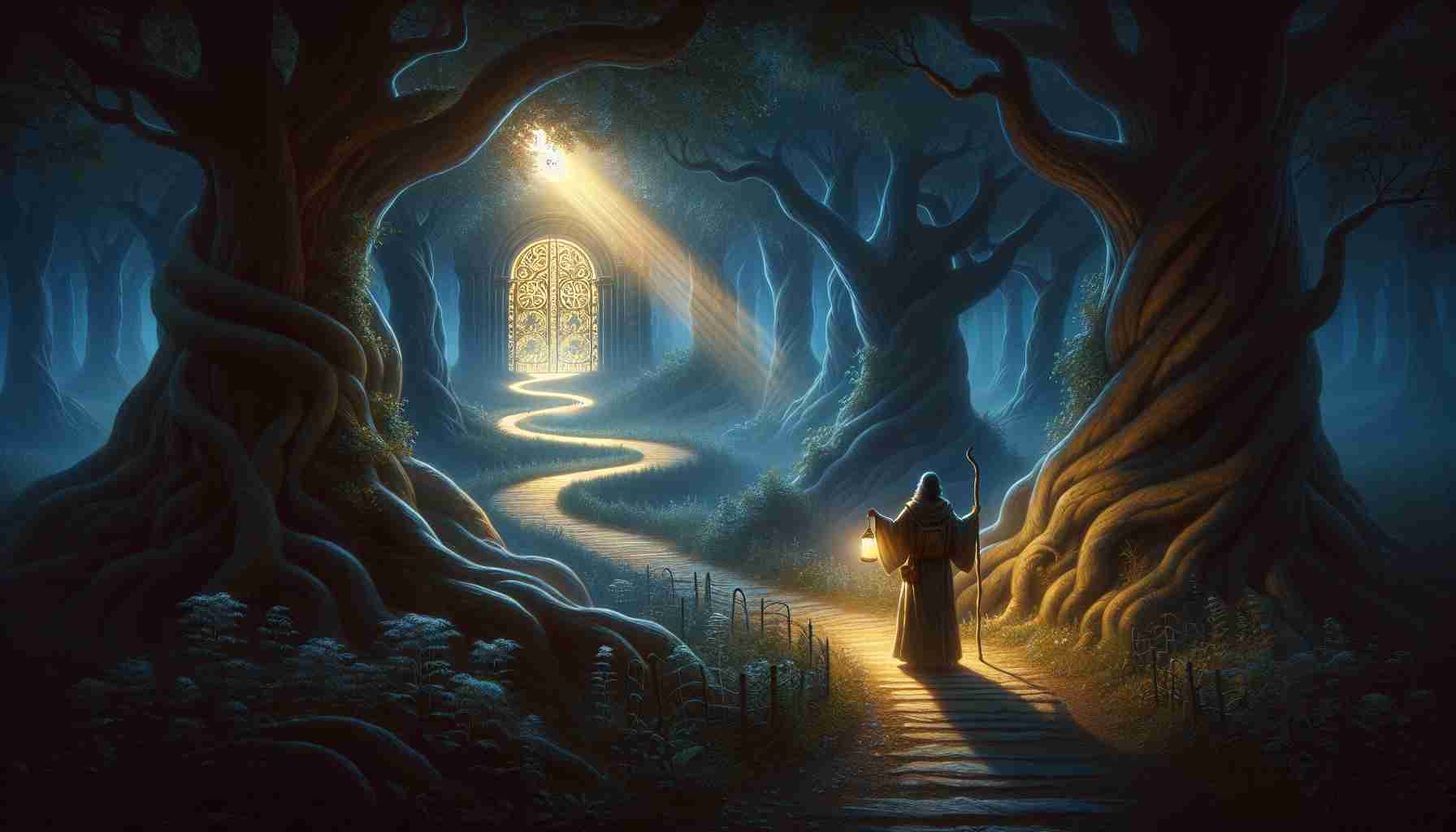

Dust clung to every crease in Elior’s sandals as he trudged through the marketplace outside Capernaum’s eastern gate. The air was already heavy with the shouts of hawkers and bleating goats, but his mind stayed tangled in the silence that followed his father's final breath the night before. Old debts had come to roost, and with his father gone, Elior now bore their weight alone. Just twenty summers old, yet he felt ancient, like the cracked walls of the synagogue.
He paused near the olive vendor’s stall, watching coins pass quickly between hands. Silver for oil. Silver for bread. Silver to buy Rome’s indifference and a clean slate. He had none. Only brokenness.
“Take the broad path,” his cousin Benoni had said days ago. “A small bribe to the tax collector, and your father’s debt record disappears. Everyone does it. It’s survival.” That tempting path beckoned like smooth stone under his feet, wide and adorned with smiles and shrugs.
But something in Elior recoiled. His father had walked the narrow path—honest, upright, poor to the very end. What had it earned him?
A commotion stirred ahead. People pressed against each other, murmuring. Elior stood on tiptoes. A carpenter from Nazareth was passing through town again. Some said he healed. Some said he spoke like no rabbi before him. Elior didn’t expect answers. He only wanted rest.
He followed the crowd until the man—no, the teacher—stood on a small rise beside the road. His eyes swept over the gathering, lingering somehow on Elior as if he’d been the only one there.
“Enter through the narrow gate,” the teacher said, voice low but burning in the stillness. “For wide is the gate and broad is the road that leads to destruction—and many enter through it. But small is the gate, and narrow the road that leads to life, and only a few find it.”
The words sank past Elior’s tired bones, straight into his heart. He hadn’t expected to be seen, truly seen. But he was.
After the crowd dispersed, Elior lingered, heart hammering. He stepped forward. “Rabbi,” he said, the word foreign in his mouth, “Is there... is there peace on that narrow road?”
The teacher regarded him—no judgment, just something eternal and soft in those eyes. “Not peace as the world gives,” he said gently, “but peace that endures.”
Elior felt the burden of choice pressing on him. One path promised ease, the other, struggle. But only one offered life that couldn’t be taken.
He left the road that day not lured by miracles, but called by truth. He would not pay the bribe. He would face the debts. He would carry the weight. But he would do it with his back straight and his eyes up.
As he walked into twilight, shoulders squared despite the ache, Elior finally understood his father’s quiet strength.
The path was narrow—but it led to life.
Dust clung to every crease in Elior’s sandals as he trudged through the marketplace outside Capernaum’s eastern gate. The air was already heavy with the shouts of hawkers and bleating goats, but his mind stayed tangled in the silence that followed his father's final breath the night before. Old debts had come to roost, and with his father gone, Elior now bore their weight alone. Just twenty summers old, yet he felt ancient, like the cracked walls of the synagogue.
He paused near the olive vendor’s stall, watching coins pass quickly between hands. Silver for oil. Silver for bread. Silver to buy Rome’s indifference and a clean slate. He had none. Only brokenness.
“Take the broad path,” his cousin Benoni had said days ago. “A small bribe to the tax collector, and your father’s debt record disappears. Everyone does it. It’s survival.” That tempting path beckoned like smooth stone under his feet, wide and adorned with smiles and shrugs.
But something in Elior recoiled. His father had walked the narrow path—honest, upright, poor to the very end. What had it earned him?
A commotion stirred ahead. People pressed against each other, murmuring. Elior stood on tiptoes. A carpenter from Nazareth was passing through town again. Some said he healed. Some said he spoke like no rabbi before him. Elior didn’t expect answers. He only wanted rest.
He followed the crowd until the man—no, the teacher—stood on a small rise beside the road. His eyes swept over the gathering, lingering somehow on Elior as if he’d been the only one there.
“Enter through the narrow gate,” the teacher said, voice low but burning in the stillness. “For wide is the gate and broad is the road that leads to destruction—and many enter through it. But small is the gate, and narrow the road that leads to life, and only a few find it.”
The words sank past Elior’s tired bones, straight into his heart. He hadn’t expected to be seen, truly seen. But he was.
After the crowd dispersed, Elior lingered, heart hammering. He stepped forward. “Rabbi,” he said, the word foreign in his mouth, “Is there... is there peace on that narrow road?”
The teacher regarded him—no judgment, just something eternal and soft in those eyes. “Not peace as the world gives,” he said gently, “but peace that endures.”
Elior felt the burden of choice pressing on him. One path promised ease, the other, struggle. But only one offered life that couldn’t be taken.
He left the road that day not lured by miracles, but called by truth. He would not pay the bribe. He would face the debts. He would carry the weight. But he would do it with his back straight and his eyes up.
As he walked into twilight, shoulders squared despite the ache, Elior finally understood his father’s quiet strength.
The path was narrow—but it led to life.